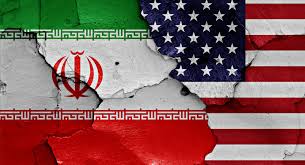Five for Five: US-Iran Prisoner Swap and the Nuclear Deal

All Global Research articles can be read in 51 languages by activating the Translate Website button below the author’s name.
To receive Global Research’s Daily Newsletter (selected articles), click here.
Click the share button above to email/forward this article to your friends and colleagues. Follow us on Instagram and Twitter and subscribe to our Telegram Channel. Feel free to repost and share widely Global Research articles.
***
The US and Iran are in a negotiation to swap five prisoners held in Iran for five prisoners held in the US.
The deal has not been finalized, and the prisoners may not arrive home soon, but the deal has been placed into motion as Iran has transferred the five prisoners to house arrest, some having been transferred out of the infamous Evin prison in Tehran.
Qatar, Oman and Switzerland played a role in the deal, and when it finalizes, $6 billion dollars will be converted to Euros in a South Korean bank account which holds frozen Iranian funds. After the US dollars are converted to Euros, they will then be transferred to a bank in Qatar which will allow Iranian access, but the account will be restricted for food and humanitarian needs.
Tensions between the US and Iran have escalated since President Trump pulled the US out of the Joint Comprehensive Plan of Action (JCPOA) to ensure that Iran’s nuclear program will be exclusively peaceful which was signed July 14, 2015. Trump’s move was an appeasement to Israeli Prime Minister Netanyahu, who has long threatened a military attack on Iran’s nuclear facilities. With Israel now facing civil war over domestic issues, Netanyahu still threatens an attack to diffuse opposition to his government.
After taking office, President Biden’s administration has sought to come to a new agreement with Iran to curb the enrichment of uranium. However, the negotiations have failed to produce results. Experts have said this latest prisoner swap may be one small step in re-igniting the waning diplomacy between the US and Iran.
Trump’s decision to leave the JCPOA in 2018 has allowed Iran to escalate its enrichment of uranium to 60% purity, which is short of the 90% needed to produce a nuclear weapon.
Biden has asked Iran to decrease its enrichment of uranium, hand over several American prisoners, pull back its support for Russia, and avoid targeting US forces stationed in the Middle East. Iran has agreed in principle to stop stockpiling uranium enriched to 60%, and is now in the process of a prisoner swap.
Previously, Iran has cooperated with UN nuclear inspectors and provided some information to them concerning past nuclear activities in question. A report by the UN inspectors is expected by the end of this month, perhaps coinciding with the prisoner swap.
Siamak Namazi, 51, Emad Shargi, 58, and Morad Tahbaz, 67, are three of the five in the proposed prisoner swap. The name of the fourth and fifth US citizen has not been made public.
Iran’s mission to the UN said,
“As part of a humanitarian cooperation agreement mediated by a third-party government, Iran and the US have agreed to reciprocally release and pardon five prisoners. The transfer of these prisoners to out of prison marks a significant initial step in the implementation of this agreement.”
Tehran scaled back its nuclear program in 2015 in exchange for lifting of international sanctions, but after Trump’s disastrous break with the deal in 2018, he piled on sanctions under his ‘maximum pressure’ policy, and Biden has also continued to impose new sanctions on Iran.
The Chinese brokered agreement between Iran and Saudi Arabia has given hope to the Middle East for a peaceful and prosperous future.
Netanyahu set two main goals for his administration. He wants to sign Saudi Arabia onto the Abraham Accords with Israel, and to vastly expand Jewish settlements on the Occupied West Bank of Palestine. Crown Prince Mohammed bin Salman of Saudi Arabia has said no agreement with Israel can be reached until the rights of the Palestinian people have been first met with Israel.
In my personal view, all of the military tension which the US has created in the Middle East lately, by sending the US aircraft carrier with 3,000 Marines onboard to the Arab Gulf, and the military reinforcements to the east of Syria, is designed to promote negotiations on many issues concerning the region and the US role played.
*
Note to readers: Please click the share button above. Follow us on Instagram and Twitter and subscribe to our Telegram Channel. Feel free to repost and share widely Global Research articles.
This article was originally published on Mideast Discourse.
Steven Sahiounie is a two-time award-winning journalist. He is a regular contributor to Global Research.

